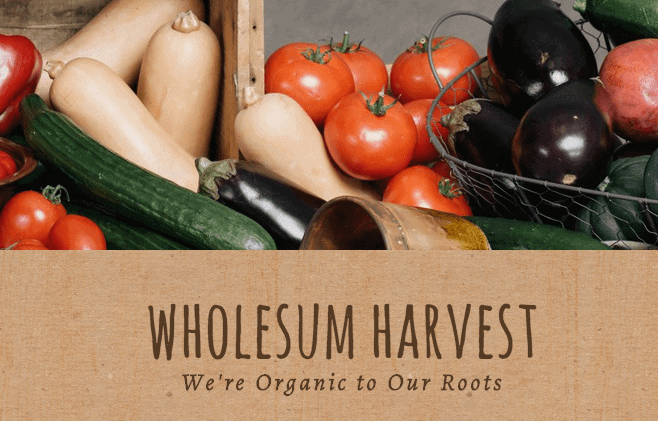
We’ve all heard the buzz about the push for organic foods. A question that we get a lot though is, what exactly is organic food? Is it the same as “natural” food? Is it GMO or non-GMO?
Although many people use the terms “organic” and “natural” interchangeably, they aren’t exactly the same thing. “Natural” means that the product has not been chemically altered or synthesized, but the USDA doesn’t currently have any regulations on what is considered to be “natural.” So while a product may be labeled as natural, it could be anything but.
“Organic” refers to the way the product is grown and processed – there are very specific requirements that must be met in order for a product to be labeled as “organic.” For example, organic crops must be grown in safe soil and have no modifications; the farmers aren’t allowed to use synthetic pesticides or GMOs, either. For livestock to be considered organic, the animals must have access to the outdoors and be given organic feed; they aren’t allowed to be given antibiotics, growth hormones, or any animal by-products.
While the push for organic foods is a relatively new phenomenon, our friends at Wholesum Harvest have been growing organic produce in greenhouses for years, and they're amazing at it. As the founder Theojary Crisantes said, organic growing is "a way of doing agriculture with common sense and with a deep understanding of the local ecosystem, where you need to have a love for the earth and an ingenuity for growing, rather than abusing the earth with agrochemicals."
Their goal has been to pass the farm to the next generation in a better condition than it was when they first planted it – a noble goal to have for any family-oriented business. As a company committed to organic foods, sustainable methods, and people, they combine their years of organic growing experience and the latest technological advances to ensure the best quality products available.Organic growing is "a way of doing agriculture with common sense and with a deep understanding of the local ecosystem, where you need to have a love for the earth and an ingenuity for growing, rather than abusing the earth with agrochemicals."
I was talking to them about their tomatoes and cucumbers, which taste amazing – as flavorful as they should! I was told that their cucumbers were never coated with any petroleum-based products – ever. Instead, they are coated with an organic vegetable wax that keeps the cucumber from losing moisture before it reaches anyone’s table. The only practices used to grow them are certified environmentally friendly, the same way all of their products are grown.
Take how they grow their tomatoes; it starts with the soil. They brew rich, organic compost teas to feed their plants – a key to their stellar flavor. Compost provides tomato plants with countless beneficial microorganisms that exist in a natural symbiosis or cooperation with the plant's roots. And they aerate their compost non-stop, promoting the aerobic microorganisms that are most beneficial to the plants and the safest for the soil. This synergy between the compost and the plants, as well as the good microorganisms, keeps their plants healthy and unmistakably betters tasting!
Their greenhouses are all sustainable and equipped perfectly for the environment needed for each vegetable they grow! For example, they know that eggplants thrive through rain, and the rain keeps the plant’s natural enemies from being able to attack them. So they figured out a system that helps the eggplants have a good old-fashioned rainstorm often, confusing the bugs so that they don’t grow and attack the eggplants. It's another natural way that they keep their vegetables organic – safe and chemical-free.They brew rich, organic compost teas to feed their plants – a key to their stellar flavor.
There’s so much more to share about organics, but whether or not you prefer organics over non-organics is your personal choice. I know one thing, these vegetables taste amazing and there’s no controversy surrounding them. That’s always a great thing in my book!
To learn more about Wholesum Harvest, see their video!


Comments